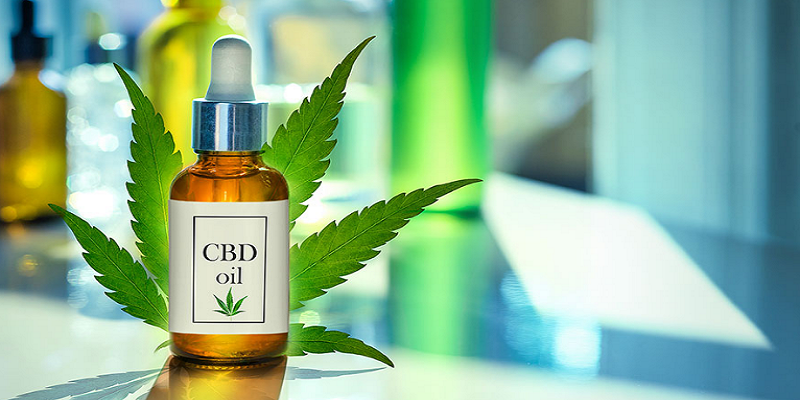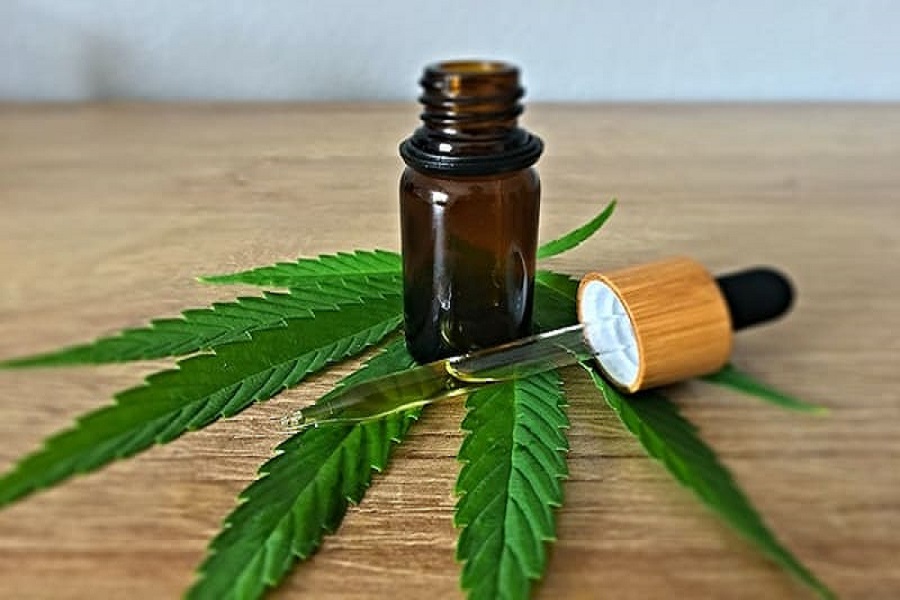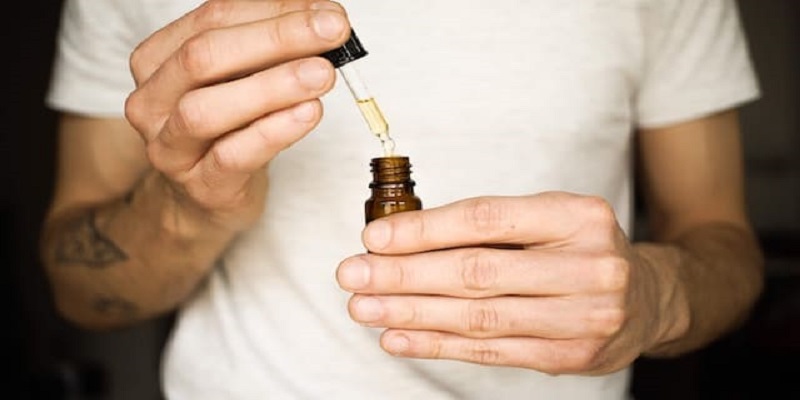
The pros and cons of CBD oil for anxiety provide a comprehensive guide for better results.CBD (Cannabidiol) oil is made from the hemp plant. Treatment of many illnesses by CBD, such as depression, anxiety, and post-traumatic stress disorders, is common. Anxiety is a mental health condition that affects 3.6 percent of the world’s population, or approximately 264 million people, as the World Health Organization reported. While traditional medications can be helpful, they can also have harmful side effects. CBD oil is a promising alternative that may help alleviate anxiety symptoms while avoiding these adverse side effects. CBD oil interacts with the body’s endocannabinoid system, which controls pain, appetite, sleep, and mood.
What is CBD Oil?
CBD oil is obtained from a cannabis plant. It is combined with coconut or hemp oil to make it easy to consume. These substances have distinctive impacts. CBD has no intoxicating effects. When used, it does not affect a person’s mental condition. The body may experience substantial changes as a result, but it is also demonstrating critical medical benefits. It is a natural method to reduce discomfort and worry without changing the outcome. CBD oil can be used in various ways, including tinctures, topicals, edibles, vaporizers, and capsules. It is helpful for numerous health issues like pain, anxiety, depression, and insomnia. CBD starts affecting after the interaction with the body’s endocannabinoid systems. This system deals with bodily systems like mood, appetite, and sleep.
CBD Oil Pros and Cons For Anxiety:
CBD (cannabidiol) oil is a common natural remedy for anxiety treatment. While the study on CBD oil for anxiety is continuous, some research has produced the results. Here are the pros and cons of CBD oil for anxiety:
Pros:
Some CBD oil pros have been explained in the following so that you can make an easy and clear decision to treat your depression by using CBD. Let’s have a look into this:
1. Potential Anti-Anxiety Properties:
According to some research, Individuals with social anxiety disorder, generalized anxiety disorder, and post-traumatic stress disorder (PTSD).have shown that CBD can improve anxiety-related behaviors.
2. Non-Addictive:
Unlike prescription anti-anxiety drugs, CBD oil is non-addictive and does not cause a “high” or a sense of intoxication. As a result, it may be a safer option for those who want to control their anxiety without the risk of addiction. Click Here to read more about the HIGH effects of CBD.
3. Natural:
CBD oil is a natural alternative to prescription anti-anxiety medications that may come with potential side effects. By using CBD, you can treat depression and anxiety naturally without getting “HIGH.” As other medicines interact with blood and make the human body addicted, but CBD does not make a person addicted.
4. No Psychoactive Effects:
CBD oil does not have any psychoactive properties and does not cause the user’s mental state to change in any way. Because of this, those who suffer from anxiety may find that using it is a potentially safer alternative to using marijuana or other psychoactive substances.
5. Easy to Use:
CBD oil is easy to use and can be taken orally, applied topically, or inhaled through a vaporizer or e-cigarette. CBD capsules are the most common and easy way to take them. But for those who want to take more results, vaping is best because, by vaping, the effects of CBD can be absorbed more.
6. Multiple Delivery Methods:
CBD oil is available in various forms, including capsules, tinctures, and creams, making it easy to find the best method. Vaping is also a popular method to inhale CBD for its potential health benefits. Multiple forms of CBD oil make it comfortable for individuals to consume it.
7. Fast-Acting:
CBD oil can provide fast-acting relief from anxiety symptoms, especially when inhaled through a vaporizer or e-cigarette. By Vaping CBD, you can take more potential advantages because it goes to the bloodstream through the lungs, so the affection of CBD becomes stronger.
8. No Prescription Required:
CBD oil is available in many places without a prescription, making it accessible to people who may not have access to or do not want to use prescription medications. You can also buy CBD online from different online marketplaces like Amazon, Flipkart, etc.
9. Improve Sleep:
CBD oil may improve sleep quality in people with anxiety-related sleep disorders, reducing anxiety symptoms. When a person treats depression and anxiety, it directly affects and helps to enhance the quality of sleep.
10. Promotes Relaxation:
CBD oil has been shown to promote relaxation and reduce stress levels, making it potentially helpful for treating anxiety. Relaxing the mind is the most important part of treating anxiety because you can’t even focus on anything with a disturbed mind.
CBD oil may have several beneficial effects on the treatment of anxiety. However, additional research is required to comprehensively understand CBD oil’s potential advantages and disadvantages in treating anxiety. Before beginning treatment with CBD oil for anxiety, discuss your decisions with a licensed doctor, especially if you are already taking other pharmaceuticals.
Cons:
Here are some disadvantages of CBD oil that should be considered before using CBD. Keep on reading to know these disadvantages.
1. Lack of Regulation:
Because the CBD industry is unregulated, products of different companies will often have wildly different levels of both quality and potency. Incorrect labelling and potentially harmful additives are also possible reasons for worry.
2. Possible Side Effects:
CBD oil is generally considered safe; however, some individuals may experience side effects such as dry mouth, drowsiness, and decreased appetite. These effects may be temporary or permanent.
3. Interference with Medication:
CBD oil can cause adverse interactions with several pharmaceuticals, including blood thinners. Before using CBD oil for anxiety, discussing your treatment options with a qualified medical practitioner before using CBD oil for anxiety is essential.
4. Not a Cure:
CBD oil is not a cure for anxiety and may not be effective for everyone. It is important to remember that anxiety is a complex condition that may require a combination of treatments, including therapy and medication.
5. Possible Legal Issues:
The legal status of CBD oil varies from country to country and state to state. It is important for awareness of the laws in your area before using CBD oil for anxiety.
6. Expensive:
High-quality CBD oil can be expensive, making it less accessible to people who may not have the financial resources to purchase it regularly.
7. Lack of Long-Term Studies:
Despite some studies showing encouraging results, there aren’t many long-term studies on the efficacy and safety of using CBD oil for anxiety.
8. May Not Work for Everyone:
CBD oil may not work for everyone and may not relieve all anxiety symptoms. Talking to a healthcare professional about other treatment options if CBD oil is ineffective is important.
9. Risk of Addiction:
While CBD oil is non-addictive, some people may become reliant on its use for anxiety management, leading to psychological dependence.
10. Not Regulated by FDA:
CBD oil is not regulated for safety and efficacy like prescription medications because the FDA has not licensed it to treat anxiety.
Even though CBD oil has a lot of potential advantages for managing anxiety, it’s essential to consider the dangers and restrictions before using it. Before using CBD oil for anxiety, remember the pros and cons of CBD oil for anxiety. It’s also recommended that you see a doctor, mainly if you take any other medications or have any pre-existing medical issues.
Also, Read: How to vape CBD oil?
Different Methods to Take CBD Oil
There are several methods to take the benefits of CBD oil for anxiety, including:
Oral ingestion:
Oral consumption of CBD oil, most commonly in the form of capsules or candies, is one of the most widely used methods of administering this substance. Because the CBD has to pass through the digestive system, this method makes dosing simple and convenient, but it may take longer to feel the effects of the CBD.
Sublingual absorption:
Another method is to hold CBD oil under the tongue for several seconds before swallowing. It allows faster absorption into the bloodstream through the blood vessels under the tongue.
Inhalation:
You can also inhale CBD oil through vaporizers or e-cigarettes. This method allows for quick absorption of CBD but can also be harsh on the lungs and may not be suitable for everyone.
Topical application:
CBD oil is applied topically to the skin through creams, lotions, or balms. This method may be helpful in localized pain or inflammation but ineffective for systemic anxiety.
Mixing with food or drinks:
CBD oil is mixed with food or drinks, such as smoothies or coffee, for easy ingestion. However, it’s important to note that mixing with hot liquids may degrade CBD oil quality.
Choosing a method that works best for you and talking to a healthcare professional before using CBD oil for anxiety is important.
Conclusion
When it comes to using CBD oil, first, consider the pros and cons of CBD oil for anxiety. Besides, studies have shown that CBD oil may help reduce anxiety symptoms, improve mood, and make people feel more relaxed. It is commonly considered safe and may have fewer side effects than traditional anti-anxiety drugs. On the other hand, because the CBD industry isn’t regulated, it can be hard to tell if a product is good and how strong it is. CBD oil could also interact with other drugs and might not work for everyone. Long-term research is also required to learn more about how safe and effective CBD oil is for anxiety.
FAQs
Q. How does CBD oil work for anxiety?
CBD oil is believed to work by interacting with the body’s endocannabinoid system. This system controls mood, appetite, and sleep, among other things.
Q. Is CBD oil addictive?
CBD oil is non-addictive, but some people may become reliant on its use for anxiety management, leading to psychological dependence.
Q. Can CBD oil replace anti-anxiety medication?
CBD oil is not recommended as an alternative to conventional medical treatment or therapy. It is important to consult a healthcare professional before making any changes to your treatment plan; however, it is possible that including it as part of a complete anxiety management strategy could prove to be beneficial.
Q. Can CBD oil be used for other health conditions?
CBD oil can benefit other health conditions, such as chronic pain, epilepsy, and acne. However, more research is required to fully understand its effectiveness for these conditions.
Q. Is CBD oil legal?
The legal status of CBD oil varies from country to country and state to state. It’s important to research the laws in your area before purchasing or using CBD oil.










